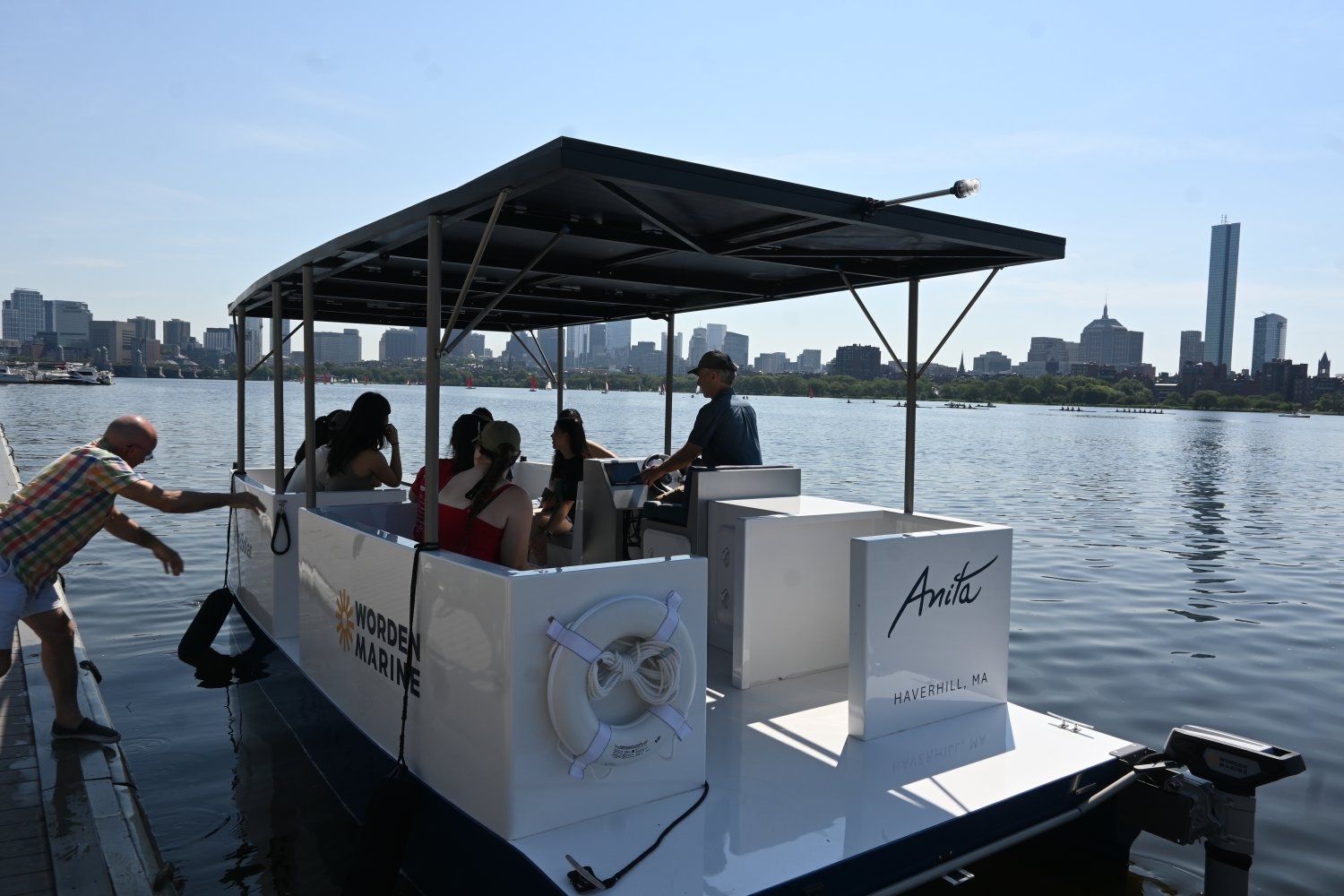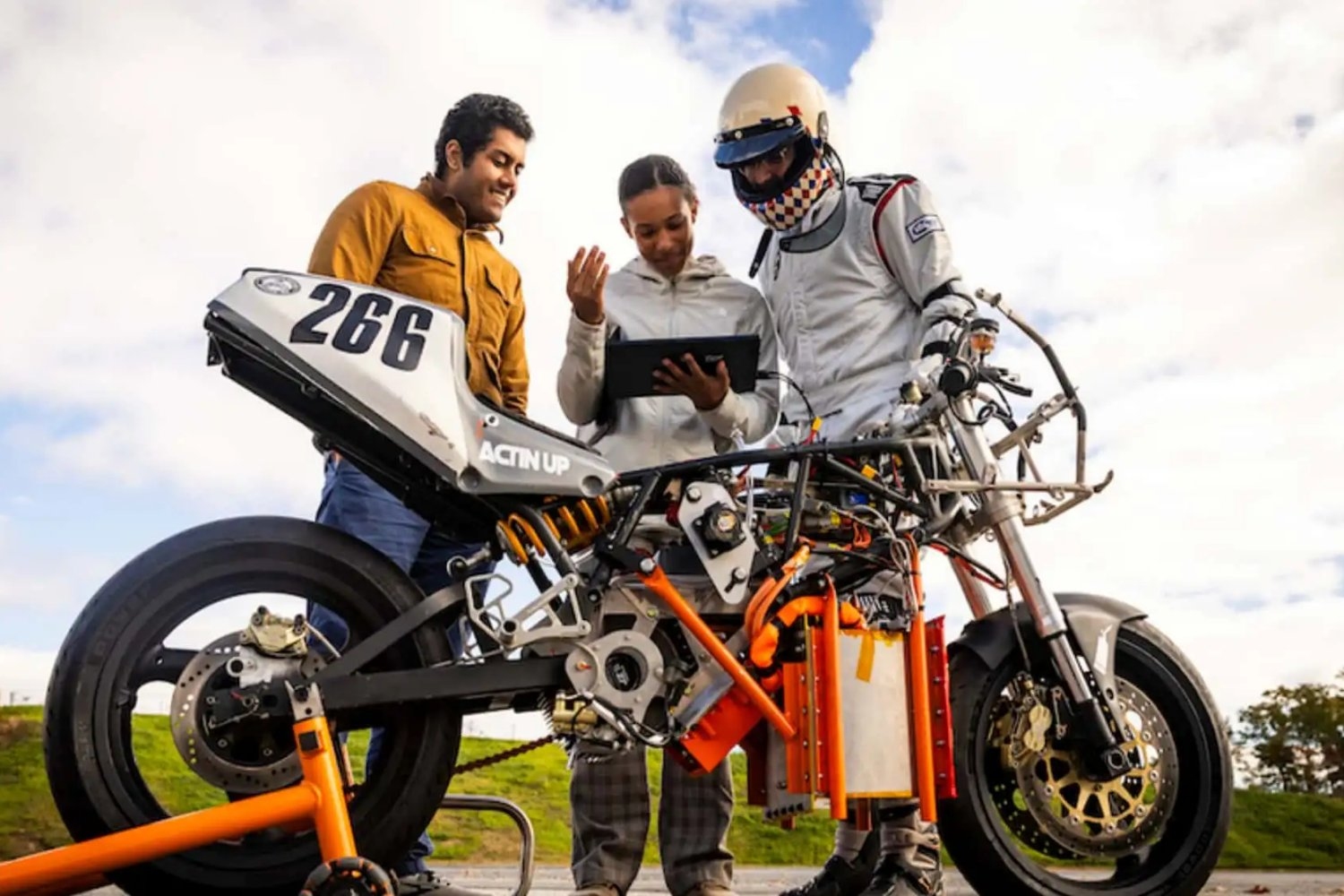
Portland police officers stand behind police tape in front of an apartment building in east Portland. (Photo by Alex Baumhardt/Oregon Capital Chronicle)
Federal agents reportedly shot and injured two people near a medical clinic in east Portland on Thursday afternoon, according to the Portland Police Bureau.
The Department of Homeland Security acknowledged the shooting on social media, though it referred to a U.S. Border Protection agent firing “a defensive shot.” Police had few immediate details to share about the incident, which occurred the day after an Immigration and Customs Enforcement officer shot and killed a woman in Minneapolis.
Like Minneapolis, Oregon’s largest city has been the subject of an intense immigration crackdown by federal agents in recent months. While a federal judge stymied President Donald Trump’s efforts to mobilize the Oregon National Guard and deploy guardsmen from other states to Portland, federal officials revealed in court in December that they’ve brought ICE agents from around the country to the metro as part of a major operation.
The Homeland Security Department claimed that agents were conducting a targeted stop against a Venezuelan national affiliated with the transnational Tren de Aragua criminal group, and that the driver attempted to run over agents when they identified themselves. The agency made similar claims about the Minneapolis shooting, though bystander videos from multiple angles showed that the officer fired into Renee Nicole Good’s car after he was clear of the car’s path.
No such videos were immediately available of the Portland incident, which occurred near a medical campus on Southeast Main Street.
“We are still in the early stages of this incident,” Portland Police Chief Bob Day said in a statement. “We understand the heightened emotion and tension many are feeling in the wake of the shooting in Minneapolis, but I am asking the community to remain calm as we work to learn more.”
Multnomah County Sheriff Nicole Morrisey O’Donnell said in a statement that the FBI is handling an investigation into the shooting. Attorney General Dan Rayfield announced Thursday evening that his office will investigate whether any federal officers acted outside the scope of their authority, in keeping with a November warning he and district attorneys of the state’s three largest counties gave the federal government that the state will investigate and prosecute federal agents who engage in excessive force.
“We have been clear about our concerns with the excessive use of force by federal agents in Portland, and today’s incident only heightens the need for transparency and accountability,” Rayfield said. “Oregonians deserve clear answers when people are injured in their neighborhoods.”
Shooting reported mid-afternoon
Police received reports of a shooting on the 10200 block of Southeast Main Street at 2:18 p.m. Six minutes later, they received a call for help from a man at Northeast 146th Avenue and East Burnside, a 10-minute drive away.
The shooting occurred near an Adventist Health building with several offices and medical clinics, the health organization confirmed in an email. The clinics closed for the rest of the day, and Portland Police were seen escorting people out in the evening.
Police found a man and woman with apparent gunshot wounds. Emergency responders transported both people to the hospital and their condition is unknown, according to police.
State Rep. Ricki Ruiz, D-Gresham, represents a neighboring state House district and spoke to the Capital Chronicle near an apartment complex where the shooting victims called for help. He said the two were hospitalized at Oregon Health & Science University and he was unsure of their condition.
A woman he spoke to said she spotted U.S. Border Patrol agents roaming the area earlier this morning, Ruiz said.
Lilian Rubi Herrera, who spoke to the Capital Chronicle in Spanish outside the apartment building, receives donations from her followers on social media to buy groceries for immigrants who are fearful of leaving their homes. She was in the neighborhood distributing food when she heard about the shooting and went to the scene.
Herrera said her social media followers are extremely sad because of the shooting in Minneapolis.
“Out of all the years I’ve lived here, I never thought I would witness this type of treatment from the federal government.” she said. “They treat us worse than dogs, and that’s not fair. We must use our voices and seek help for our community.”
A Capital Chronicle reporter saw men wearing FBI gear walking around the apartment complex behind police tape.
State, local leaders condemn shooting, urge caution
Within hours of the shooting, about 150 people had gathered outside Portland City Hall, chanting “abolish ICE.” Some held candles and anti-ICE signs as they waited to hear from city councilors.
Portland City Councilor Angelita Morillo, speaking to the crowd, called upon Congress and local officials to resist ICE operations and strip funding from the agency.
“The reality is that anyone who chooses to stand in solidarity with our community is putting themselves directly in harm’s way, because that’s what it means to sacrifice and to love your neighbor,” she said. “And what I see here is we have a group of people that is prepared to do anything and everything to take care of our immigrant community.”
Councilor Candace Avalos said the recent shooting victims were her constituents in her city councils’s district, arguing that “this is what the Trump administration’s deportation agenda looks like.” She called for the audience to keep organizing until ICE agents leave the city.
“We keep each other safe when ICE shows up in our neighborhoods, it’s not politicians who stop them,” she said. “It’s neighborhood whistles, with their phones out, standing shoulder and shoulder, forcing them out of our communities.”
Portland Mayor Keith Wilson called on ICE to immediately pause its operations in Portland and urged residents to remain calm.
“We cannot sit by while constitutional protections erode and bloodshed mounts. Portland is not a ‘training ground’ for militarized agents, and the ‘full force’ threatened by the administration has deadly consequences,” Wilson said. “As mayor, I call on ICE to end all operations in Portland until a full investigation can be completed.”
U.S. Rep. Maxine Dexter, a Democrat who represents Portland, also urged her constituents to stay calm and said local law enforcement must be able to conduct a full investigation.
“ICE has done nothing but inject terror, chaos, and cruelty into our communities,” Dexter said. “Trump’s immigration machine is using violence to control our communities—straight out of the authoritarian playbook. ICE must immediately end all active operations in Portland.”
Sen. Ron Wyden, D-Oregon, added that he was monitoring reports, and that “Trump’s deployment of federal agents in my hometown is clearly inflaming violence — and must end.”
Reporter Mia Maldonado contributed to this report.
- 10:40 pmUpdated with information about Attorney General Dan Rayfield opening investigation
This story was originally produced by Oregon Capital Chronicle, which is part of States Newsroom, a nonprofit news network which includes Wisconsin Examiner, and is supported by grants and a coalition of donors as a 501c(3) public charity.



